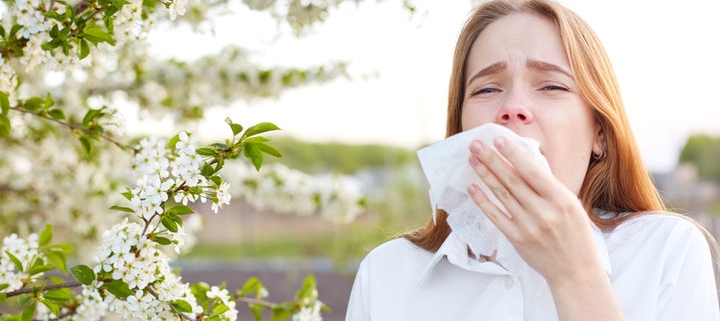Flu Cases Spike in Spring: Don’t Confuse It with Allergies – Get Your Flu Vaccine!
As we step into spring, the weather gets warmer, flowers bloom, and the days get longer. While many of us are excited to enjoy the season, there’s something else that’s on the rise: flu cases. Typically, we associate the flu with the colder months, but spring flu spikes are becoming more common. Unfortunately, these flu symptoms often overlap with spring allergies, making it tricky to tell the difference. This confusion can lead to delayed treatment and missed opportunities to protect yourself. Let’s dive into why flu is spiking during the spring and how you can stay ahead of it.
Why is the Flu Spiking in Spring?
It’s true: flu season doesn’t just end when the weather warms up. Spring flu cases have been on the rise, and there are a few reasons for this. First, the flu virus can still circulate during the spring, especially as people begin to gather for outdoor activities. With fluctuating temperatures and rapid weather changes, our immune systems might also not be fully prepared to combat the lingering flu viruses.
Moreover, flu season often stretches into the spring because the virus spreads more easily in crowded places or when there are large gatherings, like spring break travel or family get-togethers. If you’ve been in close contact with others or in public spaces, the chances of catching the flu are still very real.
Flu vs. Allergies: Know the Difference
As the weather changes, you may start to experience symptoms like coughing, congestion, sore throat, and fatigue. The tricky part? These symptoms can look very similar to seasonal allergies, which are triggered by pollen and other allergens that peak in the spring.
Here’s how you can tell the difference:
-
Flu: Sudden onset of symptoms, including body aches, chills, fever, extreme fatigue, and dry cough. You may also feel nauseous or experience headaches.
-
Allergies: Gradual onset, typically accompanied by sneezing, itchy eyes, runny nose, and congestion. Fever and body aches are not common with allergies.
If you’re feeling feverish, fatigued, or have muscle aches in addition to the typical cold or allergy symptoms, it’s a good idea to get tested for the flu.
Why You Should Get Your Flu Vaccine
While spring may seem like the “tail end” of flu season, the virus can still cause illness well into May. The best way to protect yourself and your loved ones is by getting the flu vaccine, even if you haven’t received it yet this year.
Here’s why getting your flu shot is so important:
-
Protection from Flu Complications: The flu can lead to serious complications, including pneumonia, hospitalization, and even death, especially for the elderly, young children, and those with weakened immune systems.
-
Prevention for You and Others: Getting vaccinated not only reduces your risk of getting the flu, but it also helps protect those around you who may be more vulnerable to the virus.
-
It’s Not Too Late! Even though we’re in the spring, it’s still a great time to get vaccinated. The flu virus is unpredictable, and the vaccine can help you stay protected.
Take Action Today!
Don’t let the flu sneak up on you this spring. If you’re unsure whether your symptoms are related to allergies or the flu, it’s always a good idea to check with your healthcare provider. And don’t forget, the flu vaccine is one of the best ways to protect yourself, even in the spring months.
Stay safe, stay healthy, and don’t forget to get your flu shot!
For more information on how to get your vaccine, contact us at Immunize El Paso at 915-533-3414. Stay protected and enjoy a healthier spring!





